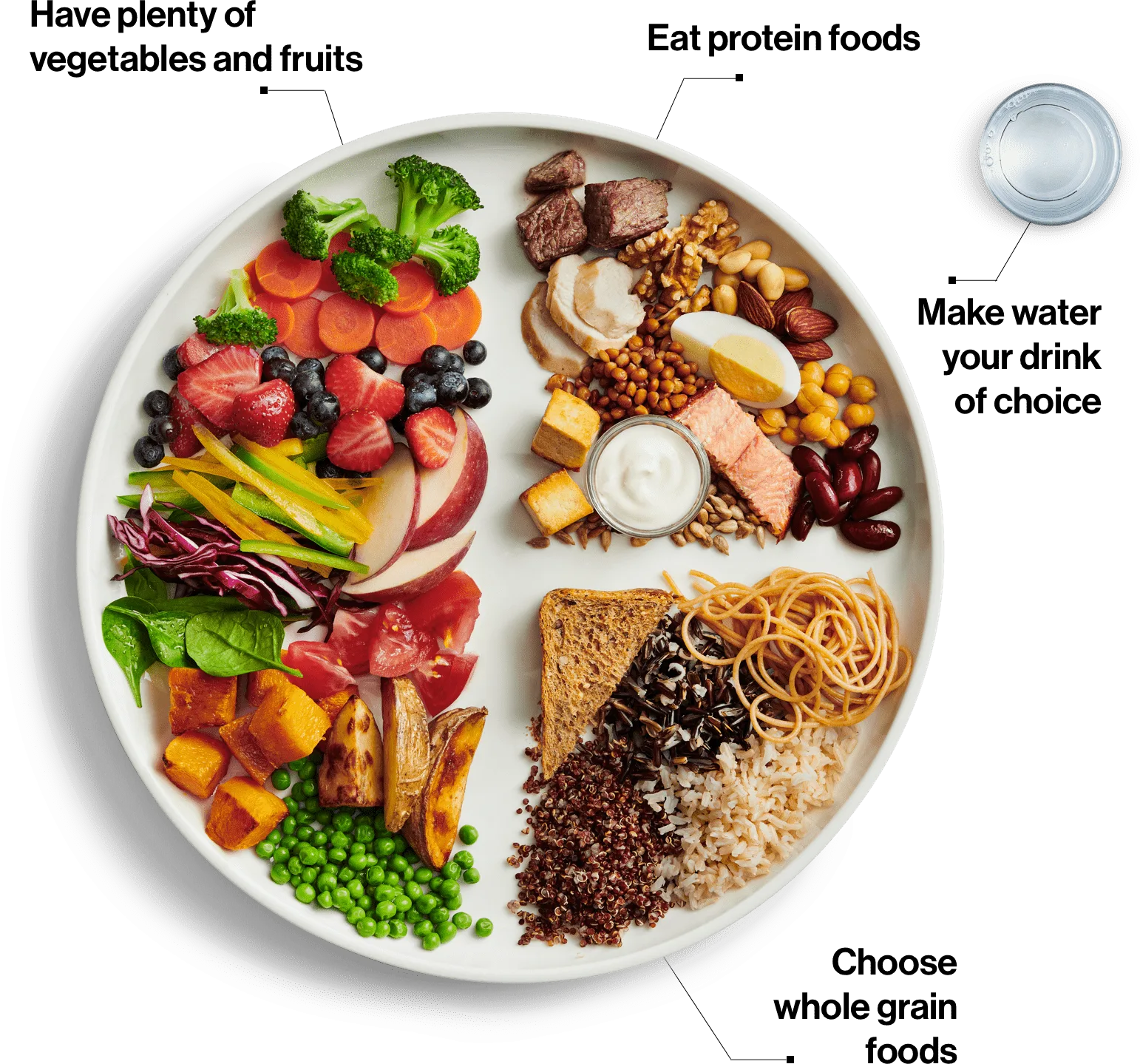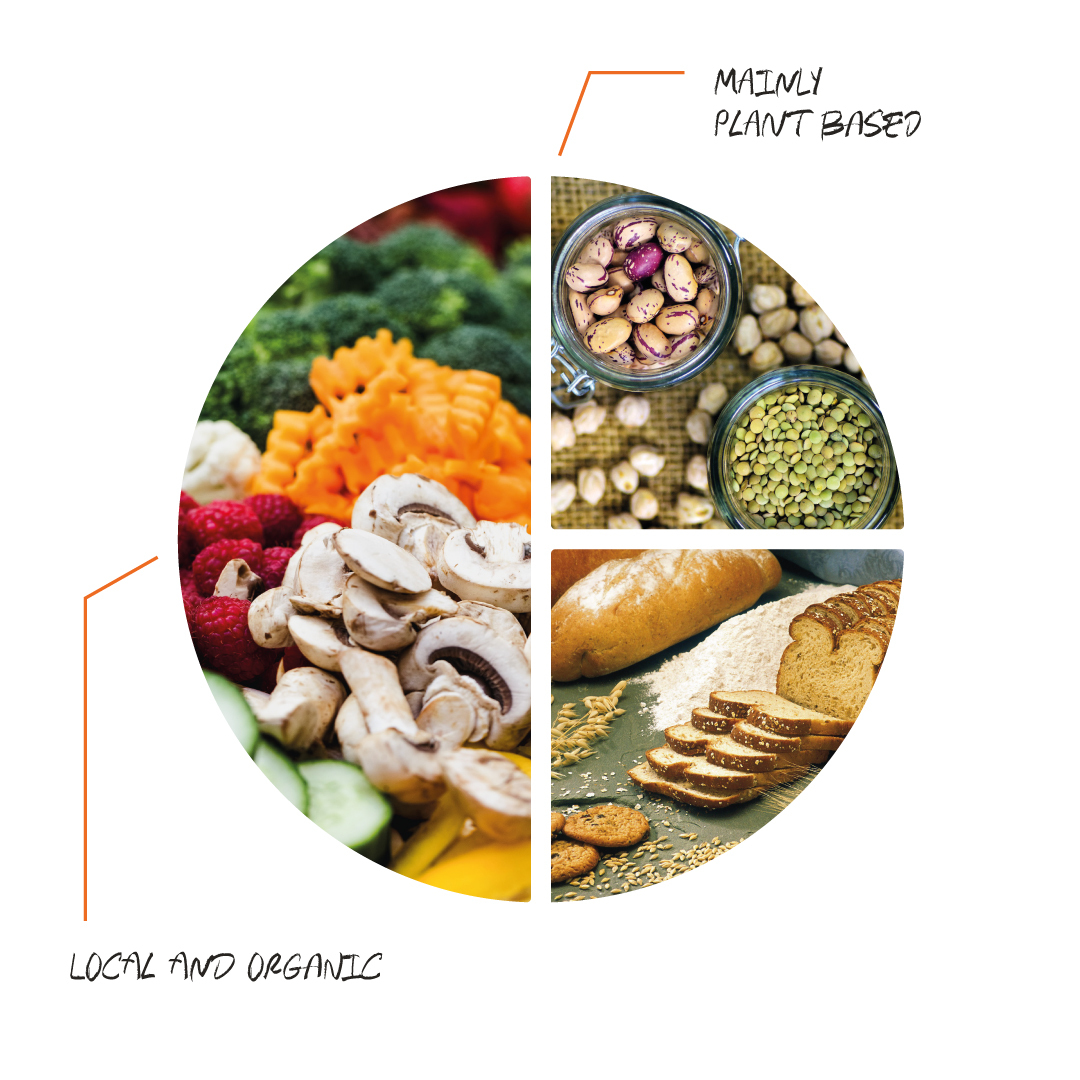Published on
When was the last time you had a look at Canada's Food Guide? Did you know that it has the underestimated power to help us make better choices not only for our health…but for the planet as well?
The guide focuses primarily on four principles for a healthy diet by providing advice not just on what to eat, but also on how to eat. The principles are:
Be mindful of your eating habits
Taking time to eat but also listening to your body so you notice when you are hungry and when you are full.
Cook more often
Cooking more often can help you develop healthy eating habits. Why not cook together, as a family or with friends?
Enjoy your food
Enjoying your food is one of the keys to a healthy diet. Eating is more enjoyable when sitting around the table and really savouring what’s on your plate!
Eat meals with others
Eating meals with others is also part of healthy eating. The more the merrier!
Balanced eating
Canada’s Food Guide is very visual and can be understood at a glance.

The guide suggests that half your plate should be made up of fruits and vegetables, with the other two quarters consisting of whole grains (like barley, naked oats, quinoa, rice or bread) and either plant- or animal-based protein (like legumes, tofu, nuts, eggs, poultry or fish). This will help fill you up and make it easier to acquire healthy eating habits.
At Équiterre, we’d like to add two important specifications to go even further for a healthy diet and climate action:

Vegetable-based proteins
Canada’s Food Guide recommends vegetable-based over animal-based protein foods - beneficial for our health but good for the planet as well. Here’s why:
First of all, overconsumption of meat – especially red meat – drives up the risk of certain diseases, such as colon cancer, cardiovascular disease and Type 2 diabetes.
Secondly, according to the United Nations Food and Agriculture Organization (FAO), animal farming is responsible for 14.5% of greenhouse gas (GHG) emissions linked to human activity. Vegetable-based food production generates fewer emissions (see the box below for some shocking statistics on Canadian agriculture!).
Quebec agriculture is mostly focused on livestock. To meet the need for animal feed, 75% of field crop farmland is used for corn and soybean production. The agricultural sector is one of Canada’s worst polluters, as livestock-raising generates 50% of GHG emissions! Although livestock and the production of food for livestock continue to play an important role in our agricultural model, Canada’s Food Guide recommends a greater emphasis on grains and legumes for human consumption.
Reducing our consumption of animal proteins and eating more vegetable-based protein is a win-win.
Only a few things missing from this nearly perfect tool
In the face of the environmental crisis (dwindling biodiversity, degradation of natural environments, water and soil pollution, greenhouse gas emissions and climate change), one of the key ways we can take action revolves around the food we eat. Canada’s Food Guide proves potential solutions… but a few issues were left out.
Preventing food waste
Many international climate experts have called for a reduction of food waste. According to the UN, 30% of our global food output ends up in the trash. That adds up to 1.3 billion tonnes of waste per year. In Quebec, food waste accounts for 4% of our greenhouse gas emissions... and each household throws out 4 kg of perfectly good food every week!
Preventing food waste doesn’t have to be complicated, Here are some tips, which can help reduce your environmental footprint, and put more money in your pockets.
Promoting local, environmentally responsible food
At a time when supply chain problems are affecting us all, and when agriculture is contributing to (and being impacted by) climate change, it’s time to revisit how we secure our food supply over the long term. Furthermore, to adapt to climate change and mitigate its effects, we must adopt sustainable agricultural practices.
That’s why Équiterre has been working for over 20 years to increase Quebec’s food autonomy, recommending various initiatives and a more ambitious set of agricultural policies to fight climate change.
One bite at a time
Despite the fact that a large part of the population suffers from food insecurity, Canadians, on average, eat too much, and have poorly diversified diets. For many, we need to rethink our eating habits and opt for a more balanced diet.
Let’s work on it! Planning our meals ahead of time, cooking with healthy, fresh food (with little to no packaging), limiting the amount of highly processed food we consume and making healthy choices when we eat out.
Opting for healthy, local and diverse food doesn't have to be complicated! By making some simple changes to our menu, we can reduce our environmental impact and at the same time, improve our health… and the health of the planet.




